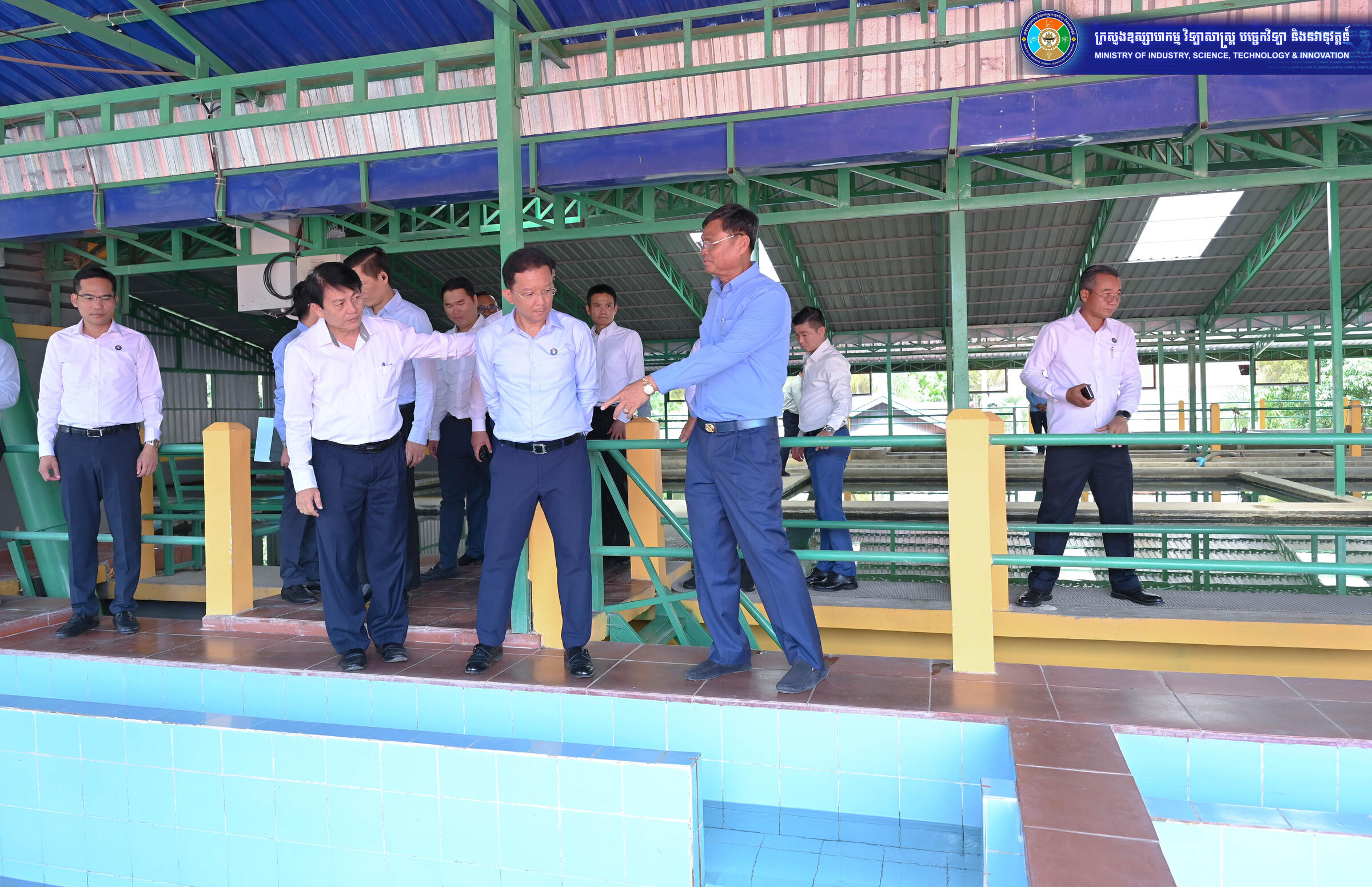
Kampong Speu, July 3, 2025 — H.E. Hem Vanndy, Minister of Industry, Science, Technology & Innovation, visited the TCU pipe production facility and Borey Kamkor Water Treatment and Supply station in Kampong Speu province to foster responsible private sector investment and Cambodia’s water supply development.
At LTKJ (Cambodia) Co., Ltd.—the operator of the TCU factory—the Minister engaged with management, toured the pipe production lines, and inspected the laboratory. Established in 2016, the TCU facility spans 80,000 square meters and employs 120 staff, including 100 Cambodian workers.
The company manufactures a wide range of products, including HDPE water pipes, U-PVC drain pipes, PPR hot and cold water pipes, and corrugated steel pipes, supplying public utilities, private water operators, and development projects.
Minister Vanndy praised the company’s contribution to national infrastructure development. “As Cambodia develops, we need more quality pipe products to meet our 2030 goals,” he stated. “There is room for your company to expand its market share—especially if you collaborate with financial institutions to offer suitable financing solutions for private water operators.”
He also encouraged TCU to contribute to developing Cambodian pipe standards, in collaboration with MISTI. “Host study visits, train technicians, and explore export opportunities as logistics improve,” he advised.
The company expressed its willingness to collaborate with technical training institutions and MISTI on developing standards and enhancing laboratory capacity for pipe testing. Additionally, it offered to provide laboratory equipment to strengthen national standards and certification efforts, supporting future export opportunities.
After the factory visit, Minister Vanndy toured the Borey Kamkor Water Treatement and Supply facility, which provides clean water to industrial and residential consumers in three operational areas in Kampong Spue, a province hosting more than 400 large-scale factories.
During the visit, the company presented its porfolio and expansion plans, including system upgrade with SCADA and GIS technologies for operational efficiency.
Minister Vanndy commended the company for its role in water supply services and broader investments in sectors like garments, waste management, and hospitality. He emphasized the importance of continual improvement.
“Water supply is an essential social service that has direct impact on public health,” he said. “Don’t be complacent. With technology advancing rapidly—operators in some countries now incorporate AI to optimize consumption, pressure management, and billing—it’s crucial that the company continues to upgrade its operations and improve effieciency.”
He also urged the company to expand its service coverage to 100%, serving both populated and underserved areas and considering future industrial growth.
MISTI has taken a number of initatives to reforms the water supply sector. It has formed a technical review team to assess water operators nationwide and instructed them to submit detailed operational reports and mid-term investment plans, aiming to promote responsible private investment and advance progress toward SDG 6.1.
By: Ministry of Industry, Science, Technology & Innovation